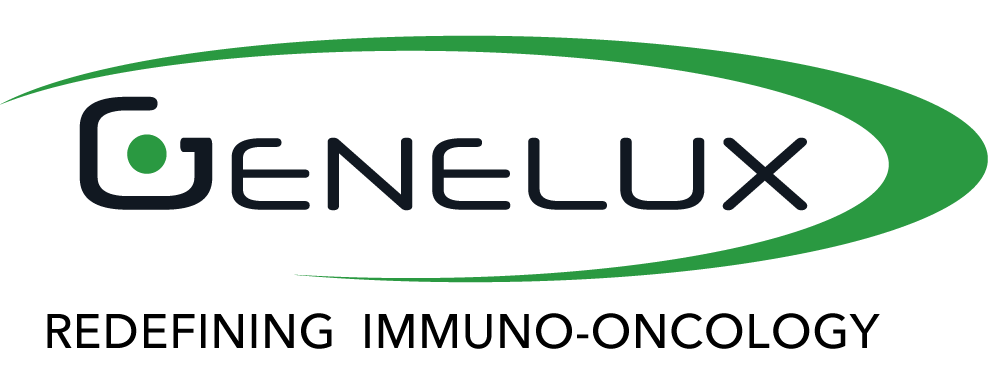Genelux Corporation Announces Publication of Phase I Trial Results of Intrapleural Administration of Olvi-Vec in Patients with Malignant Pleural Effusion from Mesothelioma, Lung or Breast Cancers in Frontiers in Immunology
- Phase 1 trial conducted at
Memorial Sloan Kettering Cancer Center ,New York , investigated the safety, feasibility and immune activating effects of Olvi-Vec by intrapleural administration. - Documented Olvi-Vec infection of tumor cells, which was also associated with reduction in tumor cell density and increase in immune cell density, confirming the mechanism of action of both direct cytotoxic and immune-activating effects.
- Among all patients, median overall survival (OS) was 19.5 months. The median OS among patients who had malignant pleural mesothelioma (MPM) was 22 months.
- There were no dose-limiting toxicities or dose de-escalations, and the maximally tolerated dose was not reached. Therefore, a recommended dose was not established.
“We are delighted to announce the publication of the Phase 1 trial data in Frontiers in Immunology, which further highlights the extensive range of tumor types that may benefit from Olvi-Vec treatment. These published results contribute significantly to the growing body of evidence that underscores the meaningful activity and safety of Olvi-Vec in a clinical setting," said
Palliative interventions have traditionally been relied upon for alleviating symptoms and preventing the recurrence of MPE, which can disrupt cancer treatments for MPE patients. However, the effectiveness of systemic immune checkpoint inhibitor therapy, chemotherapy, or a combination of therapies in MPE patients has shown limited success. This Phase 1 clinical trial enrolled eighteen MPE patients [MPM (n=15), and metastatic breast or lung diseases (n=3)], who underwent a dose escalating method of intrapleural administration of Olvi-Vec following drainage of MPE. The primary objective of this trial was to determine a recommended dose. The secondary objectives were to assess feasibility, safety and tolerability; evaluate viral presence in the tumor and serum as well as viral shedding in pleural fluid, sputum, and urine; and evaluate anti-vaccinia virus immune response.
Key Findings
- Treatment with Olvi-Vec at the dose of 1x107 plaque-forming units (PFU) to 6x109 PFU was feasible and safe, with no treatment-associated mortalities or dose-limiting toxicities.
- Olvi-Vec was detectable in tumor cells 2-5 days post-treatment, and treatment was associated with a decrease in tumor cell density and an increase in immune cell density as assessed by a pathologist blinded to the clinical observations.
- When matched tumor specimens were compared (n=4), tumor cell density score decreased from pre-treatment to post-treatment in all patients. Immune cell density score increased from pre-treatment to post-treatment in 3 of 4 patients.
- Gene expression analysis of pre- and post-treatment tumor specimens (n=16), using nCounter immune cell type scoring module, revealed increased scores (i.e., change in score by 1 unit, indicating twice the abundance of that cell type) for CD45+, Th1+, Tregs, CD8+, exhausted CD8+, NK+, cytotoxic cells, dendritic cells, macrophage, and neutrophil immune cell populations in post-treatment tumor specimens compared to pre-treatment specimens.
- Among all patients, median OS was 19.5 months. The median OS among patients who had MPM was 22 months.
- One patient with epithelioid MPM is alive at time of manuscript publication; 87 months after Olvi-Vec treatment, this patient received other treatments that are standard of care for patients with MPM.
- The maximum tolerated dose was not reached. As a result, the primary objective of establishing a recommended dose was not reached.
About Olvimulogene Nanivacirepvec (Olvi-Vec)
Olvi-Vec is a proprietary, oncolytic vaccinia virus, modified to increase its safety, tumor selectivity and therapeutic potential. Vaccinia virus is a non-human pathogen utilized as a vaccine to eradicate smallpox. Virus-mediated oncolysis results in immunogenic cell death and triggers immune activation and memory for long-term immunotherapy against cancer. Olvi-Vec has been administered to more than 150 patients in clinical studies. In these studies, Olvi-Vec was generally well tolerated and the data provided evidence of clinical benefit.
About
Forward-Looking Statements
This release contains “forward-looking statements” within the meaning of Section 27A of the Securities Act of 1933, as amended, and Section 21E of the Securities Exchange Act of 1934, as amended, and such forward-looking statements are made pursuant to the safe harbor provisions of the Private Securities Litigation Reform Act of 1995. “Forward-looking statements” describe future expectations, plans, results, or strategies and are generally preceded by words such as “believes,” “anticipates,” “expect,” “may,” “plan” or “will”. Forward-looking statements in this release include, but are not limited to, statements related to the range of tumor types that may benefit from Olvi-Vec treatment, and the body of evidence underscoring the meaningful activity and safety of Olvi-Vec in a clinical setting. Such statements are subject to a multitude of risks and uncertainties that could cause future circumstances, events, or results to differ materially from those projected in the forward-looking statements. These and other risks are identified under the caption “Risk Factors” in Genelux’ filings with the
Investor and Media Contacts
genelux@allelecomms.com
815.721.4912
Source:

Source: Genelux Corporation




